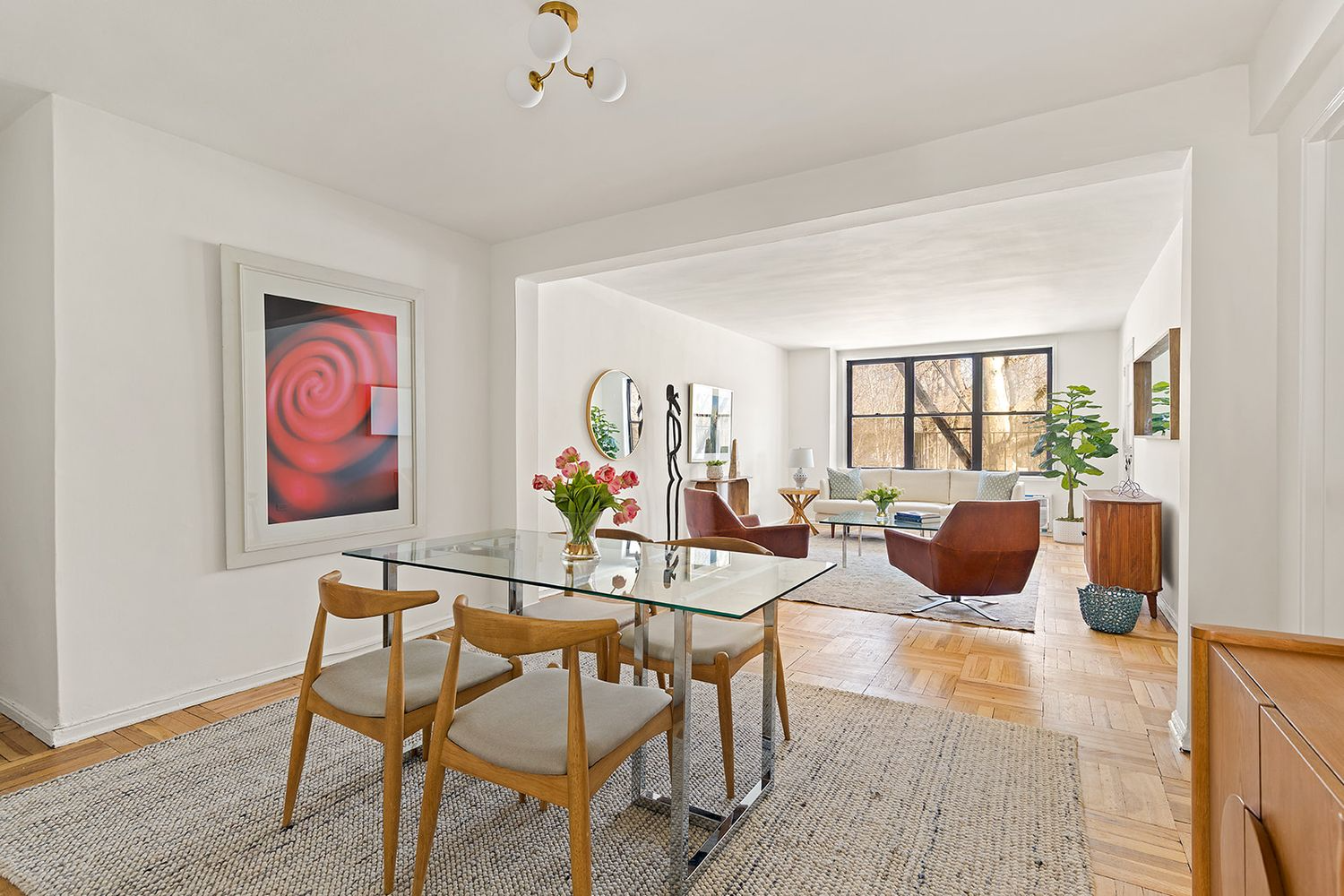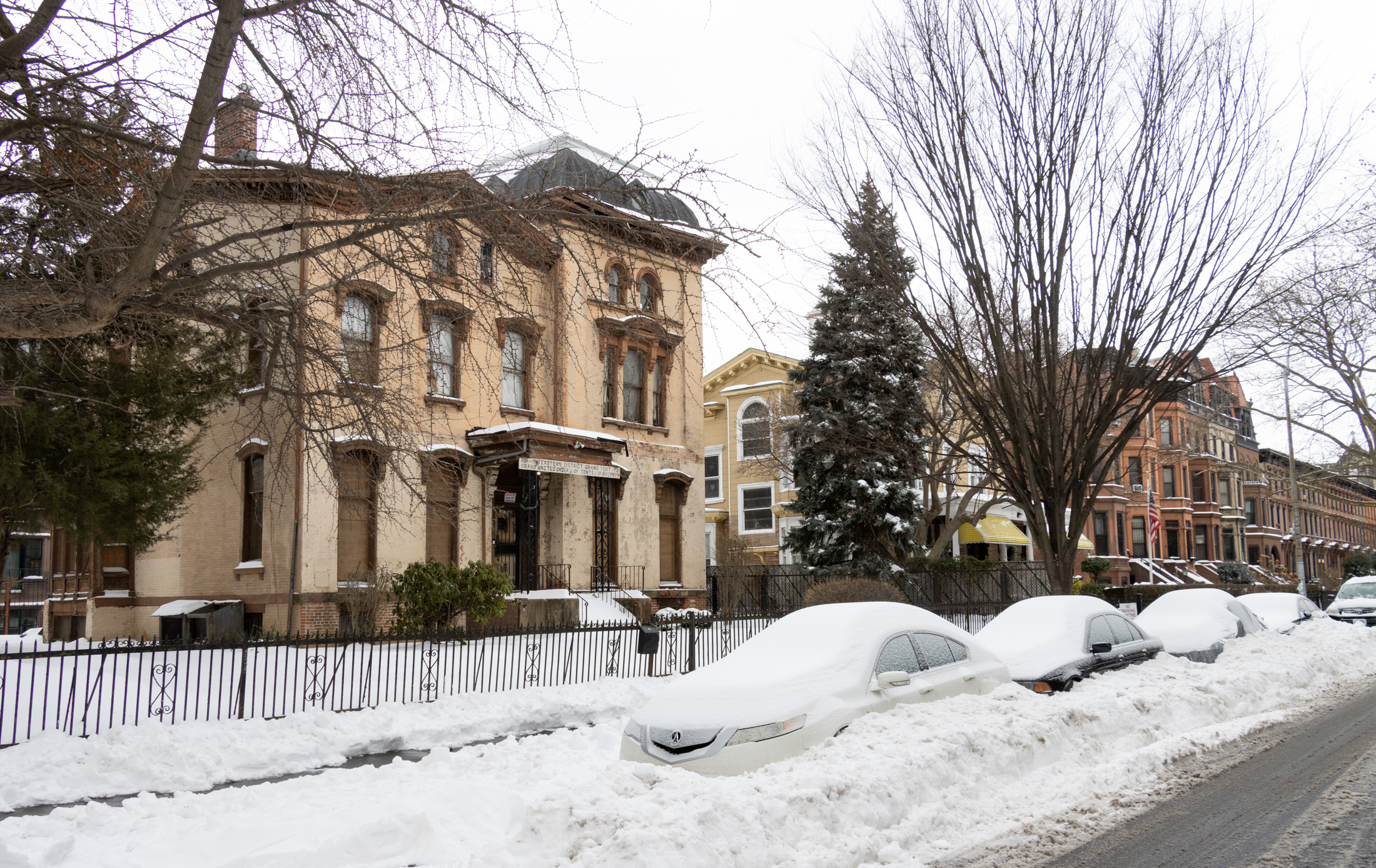Jeffries v. Broker on Neighborhood Names
Today The Brooklyn Paper ran an op-ed from Assemblyman Hakeem Jeffries about why he’s introducing a bill to formalize the process of naming neighborhoods as well as one from a Rapid Realty broker named Lanishia Goodwin about why she supports new neighborhood handles. From Jeffries’ piece: “The consequences of realtors providing misleading information are broad….

 Today The Brooklyn Paper ran an op-ed from Assemblyman Hakeem Jeffries about why he’s introducing a bill to formalize the process of naming neighborhoods as well as one from a Rapid Realty broker named Lanishia Goodwin about why she supports new neighborhood handles. From Jeffries’ piece: “The consequences of realtors providing misleading information are broad. Working families are pushed out of rebranded neighborhoods as housing prices soar. Newer residents pay more to rent or buy, largely as a result of the deceptive marketing. This is why I plan to introduce the Neighborhood Integrity Act. This bill will require the city to develop a community-oriented process before brokers can rebrand a neighborhood or redefine its boundaries simply for commercial purposes. These new names rarely result from community input and are often disconnected from a neighborhood’s history, culture or tradition.” Meanwhile, Goodwin has this to say, in part: “In Brooklyn, even familiar names are nicknames for other neighborhoods. Prospect Lefferts Gardens was borrowed from a group of buildings in the Prospect Heights neighborhood, What about Ocean Hill and Kensington? They’re really Flatbush. And what about Stuyvesant Heights? Most of the owners of the million-dollar real estate in this historical area grew up there won’t argue that it’s Bedford-Stuyvesant…Brooklyn as a whole has also become such prime real estate—there are so many people moving farther and farther into Clinton Hill, Bed-Stuy, Crown Heights, and Bushwick—that it can no longer defined by just prime neighborhoods.”
Today The Brooklyn Paper ran an op-ed from Assemblyman Hakeem Jeffries about why he’s introducing a bill to formalize the process of naming neighborhoods as well as one from a Rapid Realty broker named Lanishia Goodwin about why she supports new neighborhood handles. From Jeffries’ piece: “The consequences of realtors providing misleading information are broad. Working families are pushed out of rebranded neighborhoods as housing prices soar. Newer residents pay more to rent or buy, largely as a result of the deceptive marketing. This is why I plan to introduce the Neighborhood Integrity Act. This bill will require the city to develop a community-oriented process before brokers can rebrand a neighborhood or redefine its boundaries simply for commercial purposes. These new names rarely result from community input and are often disconnected from a neighborhood’s history, culture or tradition.” Meanwhile, Goodwin has this to say, in part: “In Brooklyn, even familiar names are nicknames for other neighborhoods. Prospect Lefferts Gardens was borrowed from a group of buildings in the Prospect Heights neighborhood, What about Ocean Hill and Kensington? They’re really Flatbush. And what about Stuyvesant Heights? Most of the owners of the million-dollar real estate in this historical area grew up there won’t argue that it’s Bedford-Stuyvesant…Brooklyn as a whole has also become such prime real estate—there are so many people moving farther and farther into Clinton Hill, Bed-Stuy, Crown Heights, and Bushwick—that it can no longer defined by just prime neighborhoods.”
Jeffries: Neighborhood Integrity Matters [BK Paper]
Goodwin: New Names Help Brooklyn Grow [BK Paper]





Ridgewood rentals aren’t bad either – and with three (soon to be four) historic districts, I really think it has quite a bit more “cuteness” than Bushwick, much of which was destroyed by arson and rioting in the late 1970s (especially after the blackout).
I think that’s established boundaries of neighborhoods, as in the divide between Fort Greene and Clinton Hill at Vanderbilt Ave. (established by the borders of the two historic districts), vs. the boundaries of established neighborhoods.
The problem with Ridgewood is the poor subway access. This has improved now that the M has been re-routed. Also, it’s not as cute as Bushwick, and Bushwick now has better restaurants. It’s remarkable how you can feel the change to Queens even though the houses are the same. But still, if anyone is looking for a two or three family in the $500,000 to $600,000 range, Ridgewood is a good option. It’s sort of the Greenpoint of Queens.
In my understanding of the origins of PLG, the plural was meant to signify both the BBG and the gardens of our neighborhood (especially the front ones).
Hey Bob,
re: the origins of the Prospect Lefferts Gardens moniker, I’ve always wondered why it’s not Prospect Lefferts Garden, if the “Garden” comes from “Brooklyn Botanic Garden”. Any ideas?
“Moving established neighborhood boundaries purely for monetary gain is unacceptable.”
Is the Prospect Heights/Crown Heights Washington to Franklin borderland the same “established” neighborhood it was ten years ago?
I disagree — thanks for pointing that out. I had only read his quotes in other newspapers but not the whole thing he wrote himself. Somewhat disingenuous, but technically accurate (if repugnant to those with a caveat emptor approach).
Brokers don’t “inflate prices”, that’s just silly. Demand inflates prices. That’s called economics 101. And they sure don’t “set off a chain reaction” that forces people out of their neighborhoods. That’s also just supply and demand. Obviously “newcomers” were also priced out of their old neighborhoods. Are people moving to Brooklyn from manhattan crying and whining about being priced out of manhattan? Those people in are the exact same position as the people getting priced out of Brooklyn neighborhoods. That’s life. And it isn’t caused by real estate brokers.
One of you- fine. A whole passel of you? Nope 🙂
But the issue isn’t even the normal changing of neighborhoods- gentrification feels as though someone decides your neighborhood should belong to them because they have more money. The usual comment is, well if you can’t afford you neighborhood any more, move where you can. That doesn’t cut it for people. And where do they go when they get priced out? At some point they have no where to go and with a lot less resources.